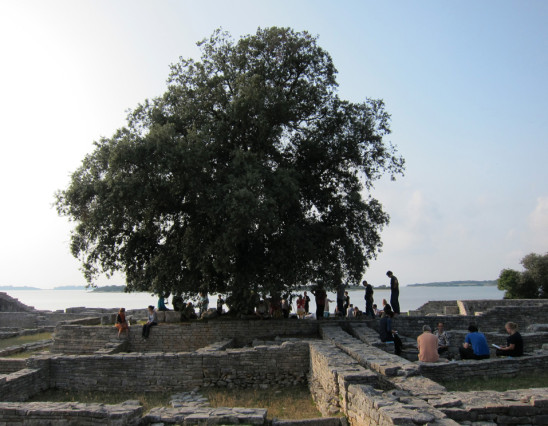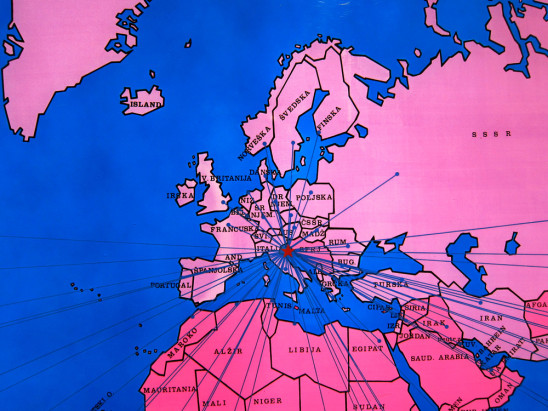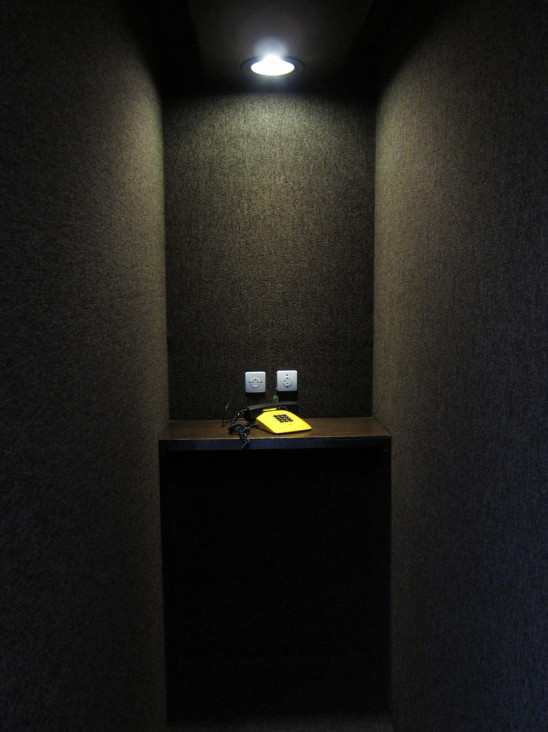
Crafting utopias at a Byzantine castrum on Brioni island, Croatia
At the Summit of Practical Utopias, our group (me, Miranda Veljačić / Platforma 9,81, Emina Visnic / POGON, Nik Gaffney / FoAM, Željko Blaće and Tim Boykett / Time’s up) developed an an utopia that would answer the question ‘How could citizens collectively make informed decisions regarding urban environment’?
We decided to call this utopia Origamia, referring to the capability of something to be transformed to many different forms. In Origamia, each citizen would at some point have to participate in decision making related to public affairs. This duty could be similar to civil service which exists in some countries, as an alternative to the compulsory military service. The decision making process would be based on some kind of version control system, perhaps similar to Github. Origamia would also give more power to young people (under 18 years old), so it would a kind of ‘pedocracy’.
To create a more precise definition of Origamia, we started to play a game called Nomic. We took these as the basic rules (from Wikipedia article):
“Initially, gameplay occurs in clockwise order, with each player taking a turn. In that turn, they propose a change in rules that all the other players vote on, and then roll a die to determine the number of points they add to their score. If this rule change is passed, it comes into effect at the end of their round.”
In a short amount of time we managed to define the basic rules to establish Origamia: everyone who joins the game as a player becomes a citizen of Origamia, the state maintains a registry of citizens (email addresses), the state controls a small territory (a pétanque court on the island), etc. We also decided to establish a police force, due to an incident in which some non-citizens tried to squeeze themselves by force into a specific slot within the circle of players.
– – –
The concept of Origamia is related to actual projects that the members of the group are working on / involved in, I hope we will manage to create some exchange between these in the future:
URBAN PLANNING TOOLKIT / GLOSSARY: Miranda Veljačić & co are putting together a toolkit about urban planning, aimed for non-experts. This toolkit is based on interviews of people from various different disciplines who in their work are involved in urban planning. Miranda is also teaching urban planning for 3-year old kinds in kindergartens, in her experience they can understand the basic concepts very easily and can generate great ideas.
A CIVIL-PUBLIC CO-MANAGEMENT INSTITUTION: Emina Visnic is the director of POGON – Zagreb Center for Independent Culture and Youth. The legal framework of this institution is pretty unusual – it’s set up civil-public co-management. One partner is the city of Zagreb which provides the key resources for the institution and the other partner is Alliance Operation City, a network of youth and cultural associations. In making decisions, both parties have to come to an agreement. >> More details about the POGON management model.
ACTIVISTS AND URBAN PLANNERS SWITCH PLACES: Nik proposed an idea of a residency exchange in which urban planners and activists switch places for some months. This could be based on the format of the FoAM AEGIS residency programme.
A NETWORK OF GRASSROOT NETWORKS: Prototype Helsinki aims to bring together various groups, collectives and networks which realise projects in public space. The goal is to strenghten the collaboration between the groups and to make the communication between the groups and the City of Helsinki (and other similar institutions) smoother.
– – – – – – –
Practical Utopias was a fantastic event, 11 points to the organisers for great hospitality!

Peace missions of Tito (Tito Museum, Brioni)


A short counterpoint on the Perils of Pedocracy
“Anyone concerned with the future, is most anxious about the younger generation. But to be spiritually dependent on it, to truckle to its opinions and take it as a standard, testifies to a society’s spiritual weakness. In any case, an entire historical period and the whole spiritual tenor of intelligentsia heroism are symbolized by the fact that the ideal of the Christian saint, the ascetic, has been replaced here by the revolutionary student.” –Sergius Bulgakov
http://blog.acton.org/archives/32017-the-perils-of-pedocracy.html